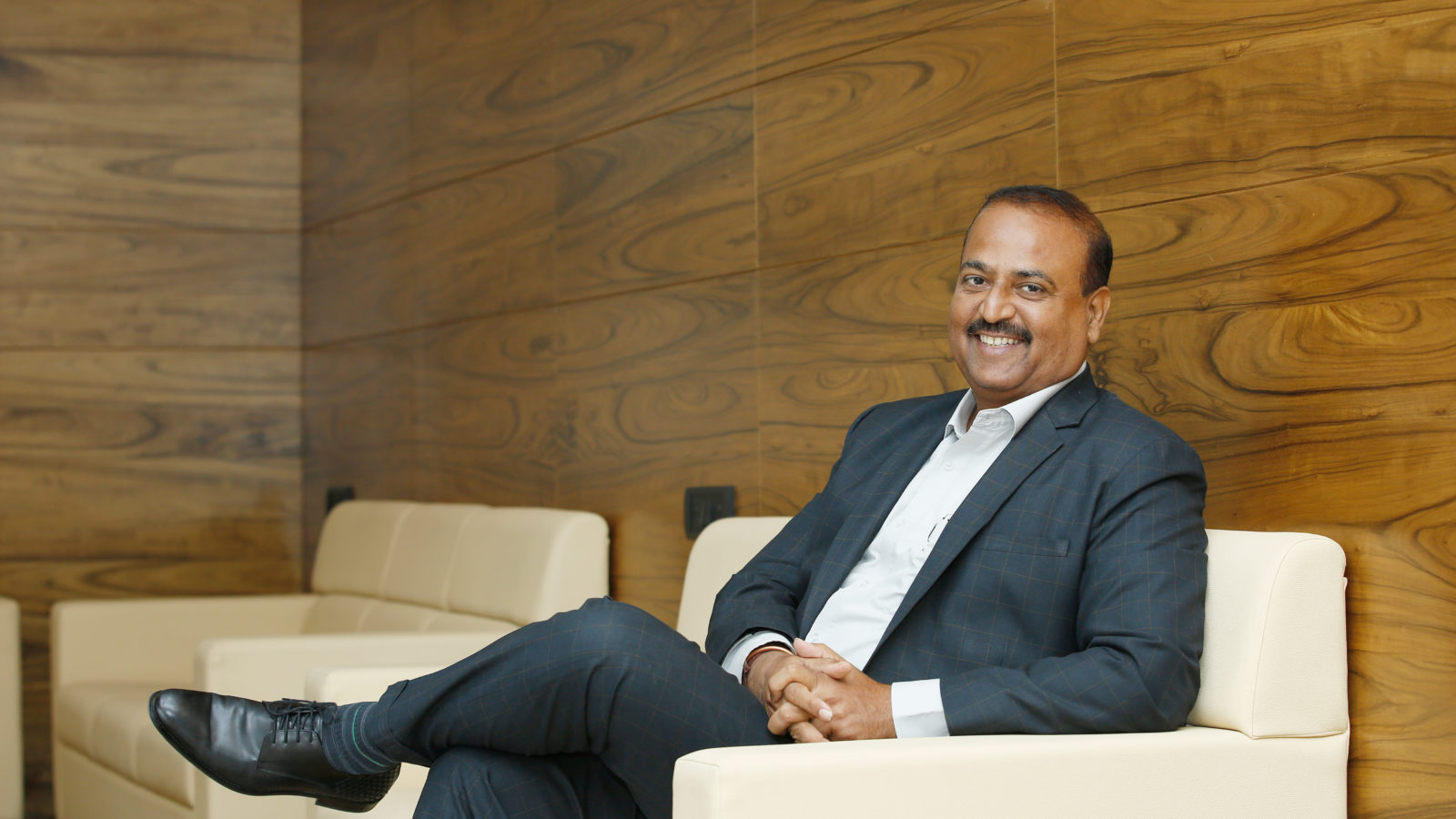A 25-year insurance industry veteran and the MD & CEO of Bajaj Allianz General Insurance, Tapan Singhel is known for building a highly profitable general insurance business in an otherwise gloomy industry. His principles of communicative leadership (he writes a regular blog that is popular on LinkedIn) and empathy towards customers and employees have yielded rich dividends for his organisation, as well as for him personally.
Bajaj Allianz won AON’s Best Employer Award in 2016 and 2018 and was named as one of the country’s best workplaces in 2018 by the Great Places To Work Institute India. Singhel has himself received many accolades, including ‘Most Promising Business Leader’ of Asia at The Economic Times Global Business Summit 2018.
In an interview to Thrive Global India, Singhel shares the secrets of thriving leaders—being transparent, remaining calm even in crises, and demonstrating positive workplace well-being behaviours that employees can follow.
Thrive Global India: What is the biggest myth about leadership or the corner office?
Tapan Singhel: That a leader is someone who is invulnerable and stays unperturbed in the most challenging times. Leadership is also considered glamorous, because a leader gets various benefits and generally has a great time. However, the reality is that leaders are as human as anyone else. They just have a different frame of mind because of the various experiences and learnings they have had. Their calm attitude is gathered over huge turbulences and due to exposure to various storms at different stages. To me, leadership is one of the least glamorous roles, because you become a good leader when you have gone through the most difficult times. You become the calmest person only when you have faced the most turbulent storms in your life.
TGI: You have said that you believe in ‘communicative leadership’. What is it exactly and how has the practice benefited you and your organisation?
TS: I personally believe that a leader who is transparent, honest and genuine will be communicative because s/he has nothing to hide. You can’t be a good leader if you hide from your colleagues. Communicative leadership is all about talking and discussing things very openly and clearly with your colleagues and employees. Most of our leaders at Bajaj Allianz General Insurance practice this approach at a very intense level and that’s what sets us apart. I hope that this approach gets deeply ingrained in the organisational culture going forward.
TGI: How can leaders promote well-being at the workplace?
TS: It is unfortunate to see that a person is perceived to be a good worker only if s/he is the first to reach work and the last to leave. Overwork and spending long hours at work have become benchmarks of doing well. I personally feel that when you talk about well-being as a leader, you need to walk that talk as well. A leader needs to work in a manner that is effective, efficient and delivers good results while demonstrating calmness even during crisis situations. Like it or not, mimicry is clearly established in behavioural science, and leaders are responsible for most of it, as people will mimic them in terms of their qualities. It is this trait of ‘walking the talk’ that helps promote well-being at the workplace as people start picking up what they see successful leaders do.
TGI: What is your mantra to cope when work gets overwhelming?
TS: I used to experience this situation much earlier in my career. It was mainly because while I was working on one task, multiple other important things that needed my attention would overlap with it. Over a period of time, having acquired experience in managing various situations, I’m able to filter out these layers, solve them one by one, and take action as soon as possible. I don’t allow tasks to overlap and build up to become a ‘burger’ of overwhelming work. Others may feel that you’re multi-tasking very effectively. However, it’s basically finishing one task well (but at hyper speed) and moving on to the next. In each task you take on, be dedicated towards it with complete mindfulness. Only then should you move to the next one and with focus and experience you can achieve efficiency as well.
TGI: If you unexpectedly find 15 minutes in a day, what would you do?
TS: I like to be with myself whenever I have some spare time. I’m constantly meeting someone or the other at work. Hence a breather to think and reflect on what you are doing really helps.
TGI: When was the last time you felt you failed, and how did you overcome it?
TS: I fail every day in hundreds of things; there is no ‘last time’ for me. Failure, big or small, doesn’t matter as long as you don’t hurt anyone, are able to learn from it, smile and move on from there.
TGI: Is sleep, for you, a luxury, necessity or a low-priority activity?
TS: Sleep is a necessity for me, because that’s how my body resets itself to be energetic and enthusiastic the next day. Having said that, when I was much younger there was a time when sleep was a low priority. I used to feel happy with just 3-4 hours of sleep and at times I did boast about it. Over a period of time, I realised that it was making me less proactive and less happy in the following days. Now it has become a necessity and I really look forward to 6-7 hours of sleep.
TGI: What is your relationship with your phone like? Do you ever draw the line on your personal gadget usage?
TS: I see my phone as a mechanism through which my customers, colleagues and other stakeholders can get in touch with me and I, in turn, can connect with them at any given point in time. I don’t see it as stress-inducing, because for me it is ethics of my work to be connected if and when people need me. It is a very important tool which ensures that anyone can contact me if they require any help. However, there are times when I get unnecessary calls or extended messages. In such situations, I prefer dropping them a message asking whether it would be okay to discuss the matter later at a certain hour.
TGI: What is the best professional advice you’ve ever got?
TS: It was from my father, who told me that come what may, you should be a good human being. Focus on doing good for others, and the rest is irrelevant.
TGI: What’s an efficiency or time-saving hack that’s worked for you?
TS: Being very mindful and immersed in the work I do has really helped me. It allows me to move from one task to another at hyper-speed while maintaining my calm.


